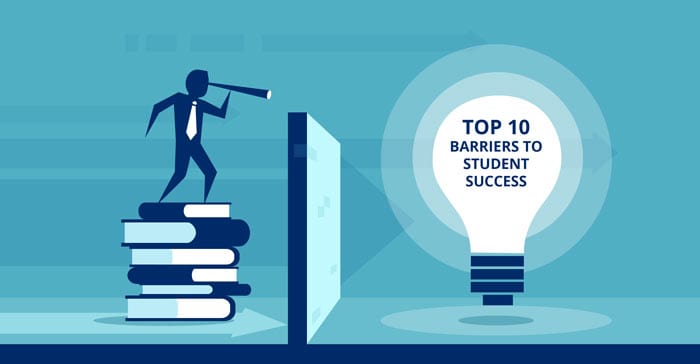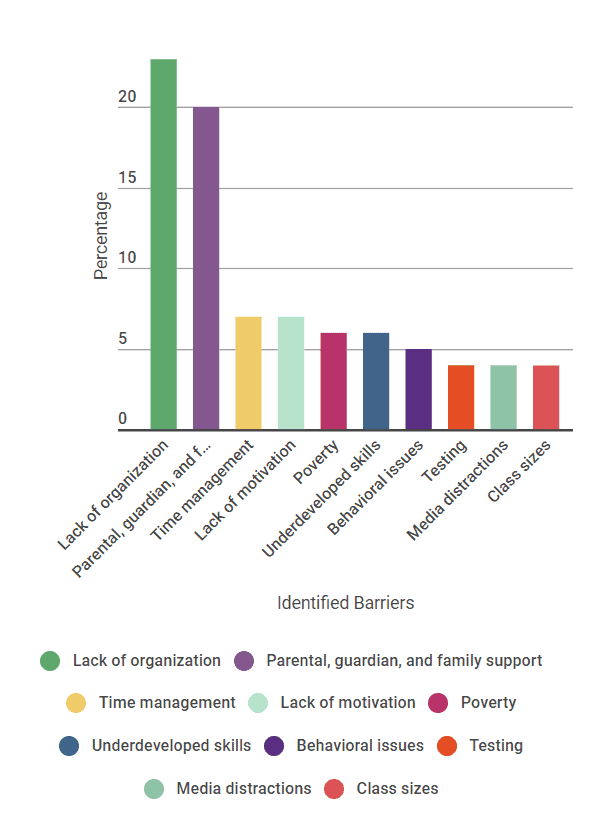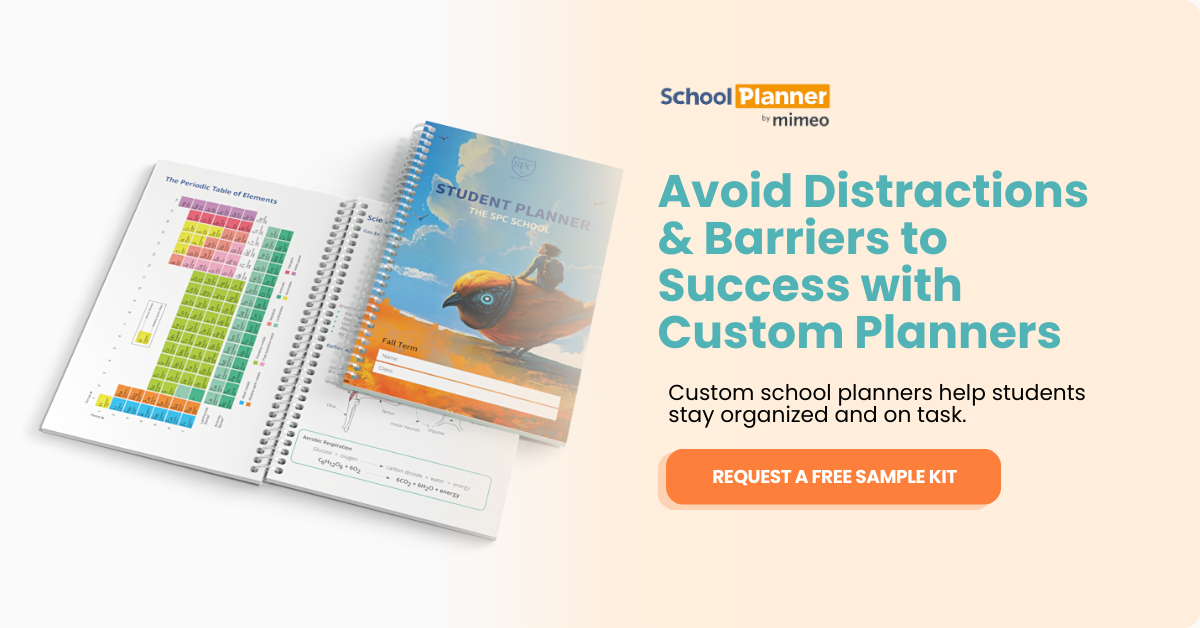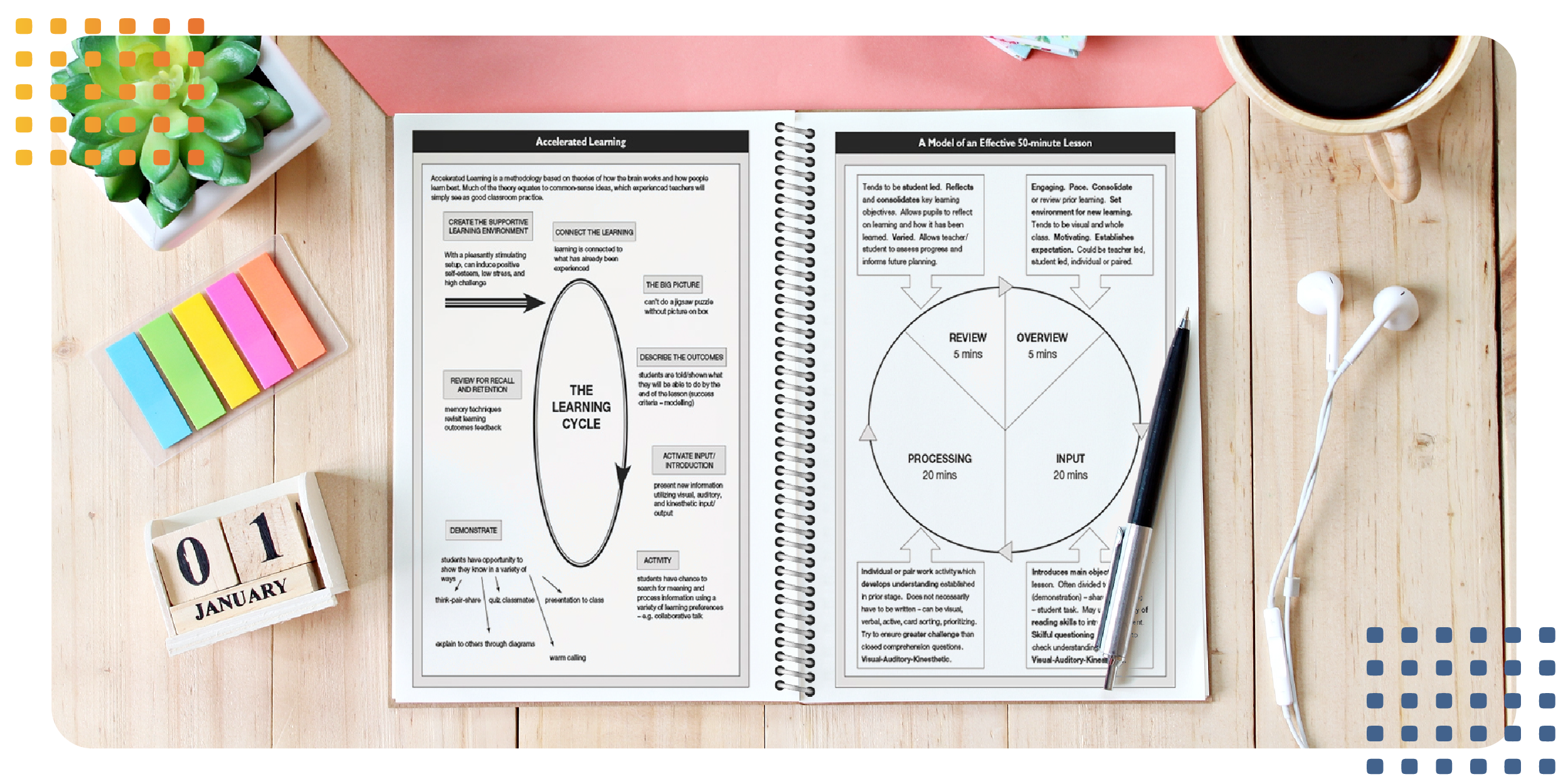Driving and improving student success is a top goal for educators. Factors that contribute to success vary, ranging from student preparation to motivation to engagement. In truth, student success takes on many forms like meeting academic or curriculum goals and developing social skills. Last month, we surveyed education professionals. Survey respondents included:
- Principals
- Assistant principals
- Superintendents
- Teachers
- Coordinators
- Administrative assistants
- Secretaries
- Coaches
- Other admin roles
- Other support roles
We asked respondents across Pre-K to Higher Education what they consider to be the biggest barrier to student success.
Let’s take a look at the results below or in this free infographic.

Top 10 Barriers to Student Success
According to the survey, nearly a quarter of the respondents agree that a lack of organization is the top barrier.
Not far behind, 20 percent of the surveyed educational professionals attribute a lack of at-home support as the biggest barrier to their students succeeding. Namely, this support consists of parental, guardian, and family support.

In addition to these 10 barriers, close runner ups include:
- Student ownership and accountability
- Inadequate resources
- Lack of consistency in students’ education
- Attendance
- Peer pressure
- Poor attention spans

Barriers to Student Success Following the COVID-19 Pandemic
The COVID-19 pandemic has had a profound impact on the education system worldwide, presenting numerous barriers to student success. As schools continue to navigate the aftermath, it’s crucial to understand these obstacles and address them effectively to ensure students are set up for future success.
1. Learning Loss and Academic Gaps
The abrupt transition to remote learning caused significant disruptions in students’ education. Many students experienced learning loss due to the inconsistent quality of online education, lack of access to technology, and varying levels of support at home. This has resulted in widened academic gaps, particularly among students from disadvantaged backgrounds. The pandemic interrupted the traditional school year, causing students to miss out on critical learning milestones. This disruption has been especially challenging for younger students who are in formative stages of their education, as well as for older students preparing for college or careers.
2. Mental Health and Emotional Well-being
The pandemic brought about a wave of anxiety, stress, and uncertainty, significantly affecting students’ mental health. Many students faced social isolation, family financial struggles, and health concerns, all contributing to increased rates of anxiety and depression.
Students who experienced the loss of loved ones or witnessed the impact of the pandemic on their families and communities may be dealing with trauma. This emotional burden can hinder their ability to concentrate, participate in class, and perform academically.
3. Access to Resources and Support
The shift to online learning highlighted the digital divide, with many students lacking access to reliable internet and devices. This inequity hindered their ability to participate in remote learning fully and exacerbated existing educational disparities. During the pandemic, access to essential support services such as counseling, special education, and extracurricular activities was limited. These services are crucial for student development and success, and their absence has had a detrimental impact on many students.
4. Motivation and Engagement
Prolonged periods of remote learning led to decreased student engagement. The lack of face-to-face interaction with teachers and peers, combined with the monotony of online classes, resulted in decreased motivation and participation.
The pandemic-induced shift in learning environments and the pressures of adapting to new modes of education have contributed to academic burnout. Students may feel overwhelmed by the demands of schoolwork and struggle to maintain focus and interest in their studies.
5. Social and Behavioral Development
Social distancing and remote learning limited students’ opportunities to interact with their peers. This lack of social interaction has impeded the development of essential social skills, such as communication, collaboration, and conflict resolution. The stress and uncertainty of the pandemic, coupled with disrupted routines, have led to an increase in behavioral issues among students. Teachers and parents report more instances of inattention, defiance, and emotional outbursts, which can affect classroom dynamics and learning outcomes.

Addressing the Barriers: A Path Forward
To overcome these barriers and support student success post-pandemic, schools and educators must adopt comprehensive and inclusive strategies:
- 1. Academic Interventions: Implement targeted interventions to address learning loss, such as tutoring programs, summer learning opportunities, and personalized learning plans.
- 2. Mental Health Support: Increase access to mental health resources, including school counselors, social workers, and mental health programs. Create a supportive environment where students feel comfortable seeking help.
- 3. Bridging the Digital Divide: Ensure all students have access to the necessary technology and internet connectivity. Provide training for teachers and students to maximize the effectiveness of digital learning tools.
- 4. Re-engagement Strategies: Develop initiatives to re-engage students, such as hands-on learning experiences, project-based learning, and extracurricular activities that foster a sense of community and belonging.
- 5. Social and Emotional Learning (SEL): Incorporate SEL programs into the curriculum to help students develop essential social and emotional skills. Promote activities that encourage teamwork, empathy, and resilience.
By understanding and addressing these barriers, we can create a more equitable and supportive educational environment that enables all students to succeed in the post-pandemic world. Schools, educators, parents, and communities must work together to ensure that every student has the opportunity to thrive.
3 Ways to Contribute to Student Success in a Post-Covid World
Every school, student, and school culture is different. Here are some ways to help elevate student achievement:
1. Focus on school culture.
Is your school’s culture a positive or negative experience? Dig deep into the current state of your school’s culture and analyze the factors that contribute to both its positive and negative aspects. Work with stakeholders to devise a plan that continually contributes to positive school culture.
2. Explore all factors.
If anything, the results of this survey show that there is a variety of reasons and circumstances that impede success.
For example, the survey responses indicate that observed issues like “time management,” “lack of motivation,” “poverty,” and “underdeveloped skills” all dovetail each other in terms of concern.
Fixing one element doesn’t mean that it will change a school’s system as a whole.
3. Involve your stakeholders.
Have you taken a roll call of your stakeholders? Leadership is critical to successfully launching initiatives that contribute to student success. However, there are other key members that should be involved from the beginning.
Students, parents, faculty, staff, school board members, and community leaders all have a hand in the outcome of student success. From the start, ensure that the appropriate stakeholders are involved and keep the communication loop open.
An excellent starting point may be asking your stakeholders to identify their expectations of what success means for them.
Would you like to take part in our next survey? Sign up for our blog to receive regular educational polls.
Tools to Support Student Success After Covid
The COVID-19 pandemic has posed unprecedented challenges to student success, but by recognizing and addressing these barriers, we can pave the way for a brighter future for all students. From bridging academic gaps and supporting mental health to ensuring equitable access to resources and re-engaging students in their education, comprehensive efforts are needed to foster a positive and effective learning environment.
One powerful tool to support these efforts is the use of custom school planners, which can help students stay organized, set goals, and manage their time effectively. Ready to make a difference in your school’s journey toward overcoming post-pandemic challenges? Contact us today to request a quote for custom school planners tailored to meet your students’ unique needs and set them up for success. Together, we can build a resilient and thriving school community.